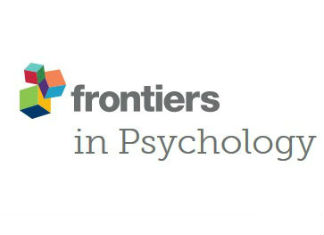Abstract
Despite evidence pointing to the associations of maladaptive emotion regulation
strategies (ERS) with psychopathology, little is known about their underlying mechanisms.
Coherently with cognitive models, this study tested the hypothesis that
specific beliefs about emotions may be associated with difficulties in emotion regulation
and the use of different ERS (reappraisal, suppression, acceptance, rumination,
avoidant coping, experiential avoidance). Consistently with the role of avoidance in
the cognitive model of worry, we sought testing a mediation pattern where negative
beliefs about emotions were connected to maladaptive ERS through experiential
avoidance. 309 participants filled out an online questionnaire that measured beliefs
about emotions, difficulties in emotion-regulation, and the tendency to adopt different
ERS. Results showed that negative beliefs and high fear of emotions were associated
with the use of specific ERS and avoidance coping. Fear of depressed mood
and anxiety was associated with rumination and emotional avoidance, whereas emotion
suppression was mainly associated with fear of anger and positive affect. Also,
we found that experiential avoidance mediated the association between beliefs about
emotion, rumination and emotional avoidance. Results provided evidence about the
specific associations between beliefs about emotions and emotion-regulation processes,
suggesting that beliefs about emotions may play a role in orienting specific ER
styles.
Links
BibTeX (Download)
@article{Trincas2016,
title = {Specific Beliefs about Emotions Are Associated with Different Emotion-Regulation Strategies},
author = {Roberta Trincas and Elena Bilotta and Francesco Mancini},
editor = {Scientific Research Publishing},
url = {http://file.scirp.org/pdf/PSYCH_2016111815130610.pdf},
doi = {10.4236/psych.2016.713159 },
issn = {2152-7180},
year = {2016},
date = {2016-11-18},
journal = {Psychology},
volume = {7},
pages = {1682-1699},
abstract = {Despite evidence pointing to the associations of maladaptive emotion regulation
strategies (ERS) with psychopathology, little is known about their underlying mechanisms.
Coherently with cognitive models, this study tested the hypothesis that
specific beliefs about emotions may be associated with difficulties in emotion regulation
and the use of different ERS (reappraisal, suppression, acceptance, rumination,
avoidant coping, experiential avoidance). Consistently with the role of avoidance in
the cognitive model of worry, we sought testing a mediation pattern where negative
beliefs about emotions were connected to maladaptive ERS through experiential
avoidance. 309 participants filled out an online questionnaire that measured beliefs
about emotions, difficulties in emotion-regulation, and the tendency to adopt different
ERS. Results showed that negative beliefs and high fear of emotions were associated
with the use of specific ERS and avoidance coping. Fear of depressed mood
and anxiety was associated with rumination and emotional avoidance, whereas emotion
suppression was mainly associated with fear of anger and positive affect. Also,
we found that experiential avoidance mediated the association between beliefs about
emotion, rumination and emotional avoidance. Results provided evidence about the
specific associations between beliefs about emotions and emotion-regulation processes,
suggesting that beliefs about emotions may play a role in orienting specific ER
styles.},
keywords = {Beliefs about Emotions, Difficulties in Emotion-Regulation, Emotion-Regulation Processes, Experiential Avoidance, Fear of Emotion},
pubstate = {published},
tppubtype = {article}
}




























